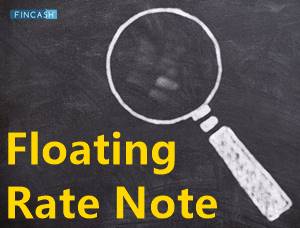
Table of Contents
The Basics of Floating Exchange Rate
A floating exchange rate is one in which the price of a currency is decided by demand and supply in association to other currencies. A floating exchange rate differs from a Fixed Exchange Rate, which is set completely by the government of the currency in the issue.
The private Market, via supply and demand, usually determines the Floating Rate. As a result, when there is a lot of demand for currency, the exchange rate rises, and vice versa. Economic inequalities and interest rate differentials across nations have a significant impact on these rates.

Central banks trade their own currencies for exchange rate adjustments in floating exchange rate regimes. This helps to stabilise an otherwise volatile market or to accomplish the desired rate shift.
How does Floating Exchange Rate Work?
The price of a floating exchange rate is determined by speculation and supply and demand factors in an Open Market Economy. Higher supply but lower demand causes the price of a currency pair to fall under this system, whereas increased demand but lower supply causes the price to rise.
Floating currencies are regarded as strong or weak based on market perceptions of their own country's economy. When a government's competence to manage the economy is questioned, for example, the currency is likely to devalue.
Governments, on the other hand, can interfere in a floating exchange rate to keep the price of their currency at a level that is favourable for international commerce while also avoiding manipulation by other governments.
Pros and Cons of Floating Exchange Rate
Exchange rates could be either floating or fixed. This section of the article covers what makes a floating exchange rate boon or bane. Here is a listing of its pros and cons.
Pros
1. Automatic Stabilization
The market, not the central Bank, determines floating exchange rates. Any changes in supply and demand will be instantly reflected. When demand for a currency is low, the value of that currency falls, making imported products more costly and driving demand for local goods and services. As a result of market auto-corrections, additional employment can be created. In other words, a floating exchange rate is an Automatic Stabilizer.
2. Free Internal Policy
A country's balance of payments deficit can be corrected under the floating exchange rate system by adjusting the currency's external price. It allows a government to achieve internal policy goals like full employment growth in the absence of demand-pull Inflation while avoiding external constraints like debt or foreign currency scarcity.
3. Protection from External Economic Events
Any economic movement in other countries will have no effect on a country's currency. The domestic economy is shielded from global economic fluctuations when supply and demand are free to move. This is feasible because, unlike a fixed exchange rate, the currency is not connected to a high inflation rate.
4. Enhance Market Efficiency
In a fixed exchange rate regime, maintaining parity as Portfolio flows move in and out of the nation is challenging. The macroeconomic fundamentals of nations impact the exchange rate in international markets, which affects portfolio movements between nations in a floating exchange rate system. Floating exchange rate regimes, as a result, improve market Efficiency.
Talk to our investment specialist
Cons
1. Higher Volatility
The value of a floating exchange rate is extremely volatile. The fact that currencies fluctuate in value from day to day adds a significant amount of uncertainty to commerce. When selling products abroad, a seller may not know how much money he would get. Companies buying currency ahead of time in forwarding exchange contracts may help to alleviate some of the uncertainty.
2. Speculation
Day-to-day Volatility in exchange rates can encourage speculative flows of "hot money" from one nation to another, resulting in even more and more severe exchange rate changes.
3. Worsening Existing Problems
If a nation already has economic problems, such as excessive inflation, currency Depreciation is likely to drive up inflation even more since the demand for its commodities has increased. Keeping the high cost of imports in mind, the situation can deteriorate further.
4. Lack of Investment
Floating currency rates can deter direct foreign investment, meaning investment by Multinational Corporations (MNCs) due to the uncertainty created by floating exchange rates.
All efforts have been made to ensure the information provided here is accurate. However, no guarantees are made regarding correctness of data. Please verify with scheme information document before making any investment.
You Might Also Like












